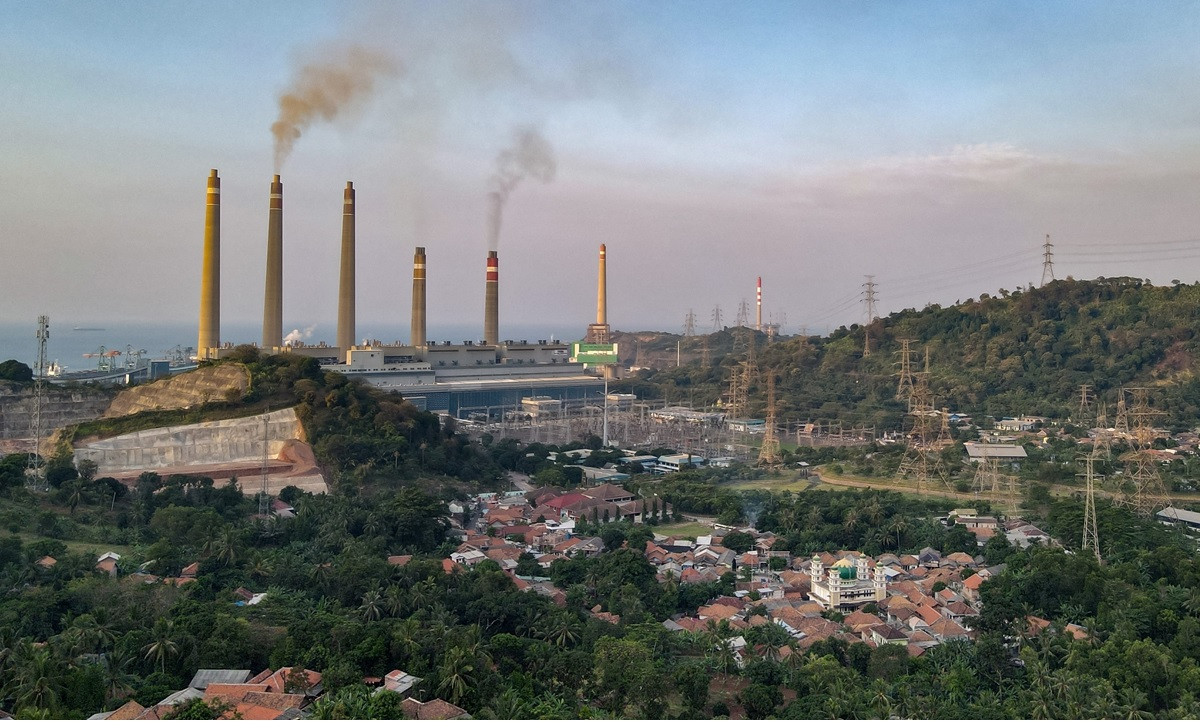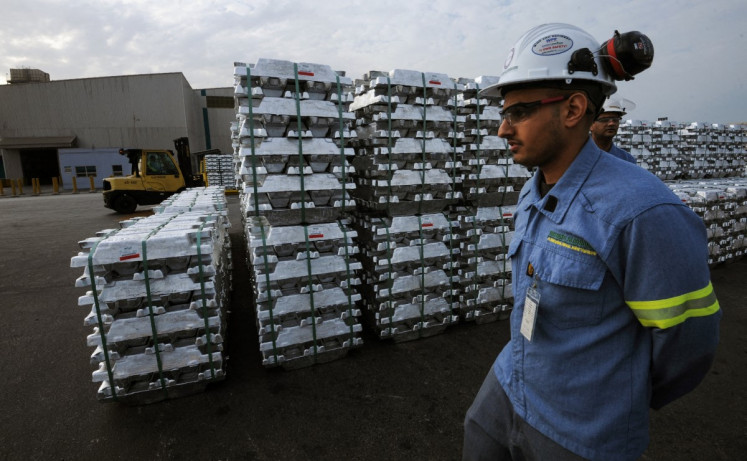Popular Reads
Top Results
Can't find what you're looking for?
View all search resultsPopular Reads
Top Results
Can't find what you're looking for?
View all search resultsJustifying coal export ban
The monthlong coal export ban is a decision between producers suffering penalties from international buyers or the country incurring heavy economic losses from a massive power outage. And let's not forget the COP26 energy declaration.
Change text size
Gift Premium Articles
to Anyone
T
he export ban on coal that the government has imposed for January 2022 seems to be the climax of the tug-of-war between coal producers and the Energy and Mineral Resources Ministry. The ministry was prompted to take the drastic decision because coal stocks at power plants have reached a crisis level due to the low compliance of producers with their domestic market obligation (DMO).
Coal producers have preferred exporting coal due the widening gap between global coal prices and the price it set to supply coal to the state electricity company (PLN) under the DMO policy, thereby depleting coal stocks at the country’s power plants. The continuing coal shortage as a result of demand-supply mismatch is threatening electricity generation at around 20 large power plants in Java that have a combined capacity of 11,000 megawatts (MW), or one sixth of PLN’s power generating capacity.
Earlier in August, the government even revoked the export licenses of 34 producers for failing to fulfill their DMO, but most producers still went all out to avoid the policy as coal prices increased to almost US$170 per ton as of January. In comparison, the government’s fixed coal price under the DMO was just $70 per ton.
The ministry set the DMO in 2018 at 25 percent of the total production of coal companies and at a fixed price of $70 per ton, an arrangement that was extended to 2021 even when global coal prices skyrocketed, especially over the past two years from several impacts of the pandemic.
For example, the DMO for 2020 was set at 155 million tons or 25 percent of the nation-wide coal production target of 625 million tons, but DMO fulfillment reached only about 70 percent. The DMO realization for 2021 was even much lower, only about 46 percent as of October. But the low DMO compliance appeared not to have adversely affected the coal supply at power plants due to lower-than-estimated power consumption due to the 2.1 percent economic contraction in 2020.
However, the coal stocks at power plants began falling sharply in the first half of 2021 after the economy started recovering and electricity demand rose significantly, thereby causing stocks to reach crisis levels in the final quarter.
The drastic measure to ban coal exports would certainly affect the reputation of Indonesia’s coal suppliers and cause heavy penalties while decreasing foreign exchange earnings, since coal became the largest export commodity last year.
But the government seems to have calculated that the economic losses from power outages would be much larger than from commercial penalties and other damages incurring from the month-long export ban. After all, Java accounts for more than 50 percent of gross domestic product.
The government appears to have learned from the heavy economic losses in India and China a few months ago, caused by an electricity crisis which was triggered by a severe coal shortage. Even so, the current coal supply crisis at Java’s power plants should force the government to review its DMO policy, but without ignoring our long-term commitment to phasing out coal as part of our transition into renewable energy.











